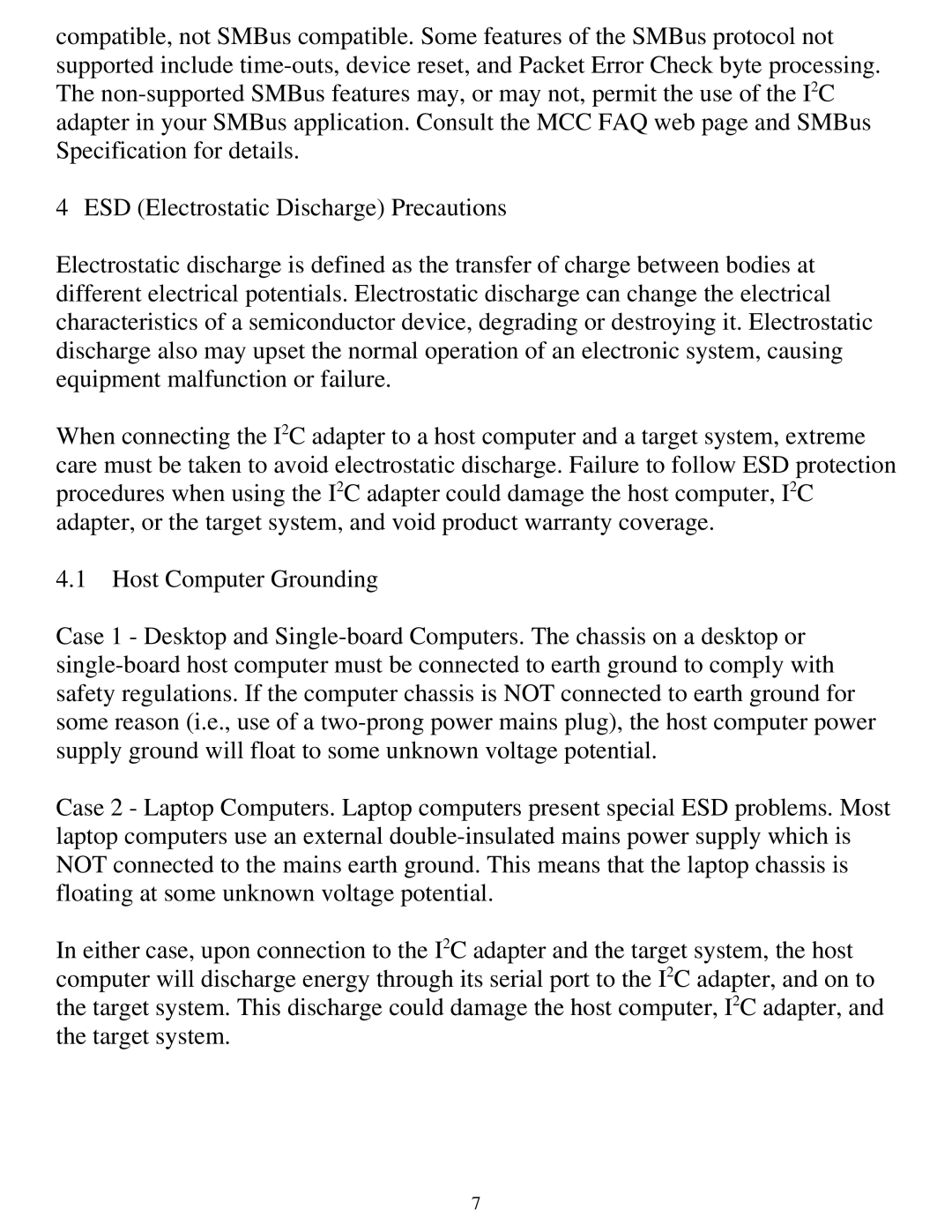compatible, not SMBus compatible. Some features of the SMBus protocol not supported include
4 ESD (Electrostatic Discharge) Precautions
Electrostatic discharge is defined as the transfer of charge between bodies at different electrical potentials. Electrostatic discharge can change the electrical characteristics of a semiconductor device, degrading or destroying it. Electrostatic discharge also may upset the normal operation of an electronic system, causing equipment malfunction or failure.
When connecting the I2C adapter to a host computer and a target system, extreme care must be taken to avoid electrostatic discharge. Failure to follow ESD protection procedures when using the I2C adapter could damage the host computer, I2C adapter, or the target system, and void product warranty coverage.
4.1Host Computer Grounding
Case 1 - Desktop and
Case 2 - Laptop Computers. Laptop computers present special ESD problems. Most laptop computers use an external
In either case, upon connection to the I2C adapter and the target system, the host computer will discharge energy through its serial port to the I2C adapter, and on to the target system. This discharge could damage the host computer, I2C adapter, and the target system.
7
